Skip to comments.
The Bible In Paintings 40B: JESUS AND THE WOMAN AT THE WELL, Part 2
c.2,200 BC - c.95 AD
| by the Father, Son & Holy Spirit
Posted on 05/23/2021 5:50:58 AM PDT by Hebrews 11:6
JESUS
AND THE
WOMAN AT
THE WELL .
|
J O H N .. 4
New International Version, emphases added
Abrdgd: the complete text is in your Bible
. |
JOHN, Chapter 4
1 Now Jesus learned that the Pharisees had heard that he was gaining and baptizing more disciples than John— 2 although in fact it was not Jesus who baptized, but his disciples. 3 So he left Judea and went back once more to Galilee.
4 Now he had to go through Samaria. 5 So he came to a town in Samaria called Sychar, near the plot of ground Jacob had given to his son Joseph. 6 Jacob’s well was there, and Jesus, tired as he was from the journey, sat down by the well. It was about noon.
7 When a Samaritan woman came to draw water, Jesus said to her, “Will you give me a drink?” 8 (His disciples had gone into the town to buy food.)
9 The Samaritan woman said to him, “You are a Jew and I am a Samaritan woman. How can you ask me for a drink?” (For Jews do not associate with Samaritans.)
10 Jesus answered her, “If you knew the gift of God and who it is that asks you for a drink, you would have asked him and he would have given you living water.”
11 “Sir,” the woman said, “you have nothing to draw with and the well is deep. Where can you get this living water? 12 Are you greater than our father Jacob, who gave us the well and drank from it himself, as did also his sons and his livestock?”
13 Jesus answered, “Everyone who drinks this water will be thirsty again, 14 but whoever drinks the water I give them will never thirst. Indeed, the water I give them will become in them a spring of water welling up to eternal life.”
15 The woman said to him, “Sir, give me this water so that I won’t get thirsty and have to keep coming here to draw water.”
16 He told her, “Go, call your husband and come back.”
17 “I have no husband,” she replied.
Jesus said to her, “You are right when you say you have no husband. 18 The fact is, you have had five husbands, and the man you now have is not your husband. What you have just said is quite true.”
19 “Sir,” the woman said, “I can see that you are a prophet. 20 Our ancestors worshiped on this mountain, but you Jews claim that the place where we must worship is in Jerusalem.”
21 “Woman,” Jesus replied, “believe me, a time is coming when you will worship the Father neither on this mountain nor in Jerusalem. 22 You Samaritans worship what you do not know; we worship what we do know, for salvation is from the Jews. 23 Yet a time is coming and has now come when the true worshipers will worship the Father in the Spirit and in truth, for they are the kind of worshipers the Father seeks. 24 God is spirit, and his worshipers must worship in the Spirit and in truth.”
25 The woman said, “I know that Messiah” (called Christ) “is coming. When he comes, he will explain everything to us.”
26 Then Jesus declared, “I, the one speaking to you—I am he.”
27 Just then his disciples returned and were surprised to find him talking with a woman. But no one asked, “What do you want?” or “Why are you talking with her?”
28 Then, leaving her water jar, the woman went back to the town and said to the people, 29 “Come, see a man who told me everything I ever did. Could this be the Messiah?” 30 They came out of the town and made their way toward him.
31 Meanwhile his disciples urged him, “Rabbi, eat something.”
32 But he said to them, “I have food to eat that you know nothing about.”
33 Then his disciples said to each other, “Could someone have brought him food?”
34 “My food,” said Jesus, “is to do the will of him who sent me and to finish his work. 35 Don’t you have a saying, ‘It’s still four months until harvest’? I tell you, open your eyes and look at the fields! They are ripe for harvest. 36 Even now the one who reaps draws a wage and harvests a crop for eternal life, so that the sower and the reaper may be glad together. 37 Thus the saying ‘One sows and another reaps’ is true. 38 I sent you to reap what you have not worked for. Others have done the hard work, and you have reaped the benefits of their labor.”
39 Many of the Samaritans from that town believed in him because of the woman’s testimony, “He told me everything I ever did.” 40 So when the Samaritans came to him, they urged him to stay with them, and he stayed two days. 41 And because of his words many more became believers.
42 They said to the woman, “We no longer believe just because of what you said; now we have heard for ourselves, and we know that this man really is the Savior of the world.”
. .

28 mmmmmmmmmmmmmmmmmmmmmmmmmmmmmmmm Image Source
by MICHAEL NOWAK
"Woman at the Well" . .

29 mmmmmmmmmmmmmmmmmmmmmmmmmmmmmmmm Image Source
by ADAM ASAR
"Christ and the Woman of Samaria at the Well" . .

30 mmmmmmmmmmmmmmmmmmmmmmmmmmmmmmmm Image Source
by GIOVANNI LANFRANCO
"Samaritan Woman at the Well" . .
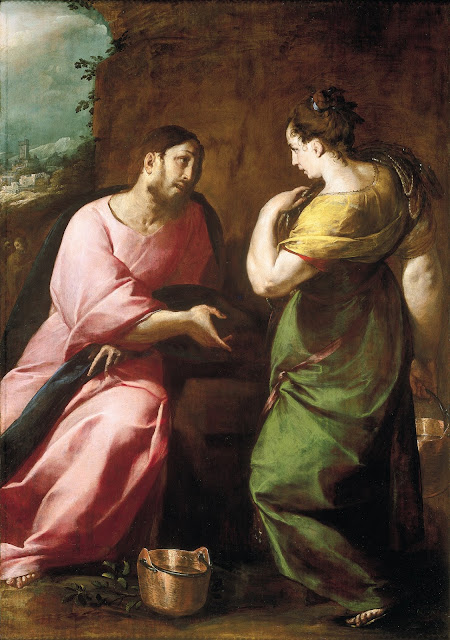
31 mmmmmmmmmmmmmmmmmmmmmmmmmmmmmmmm Image Source
by GIOVANNI BATTISTA CRESPI
"Christ and the Woman of Samaria" . .
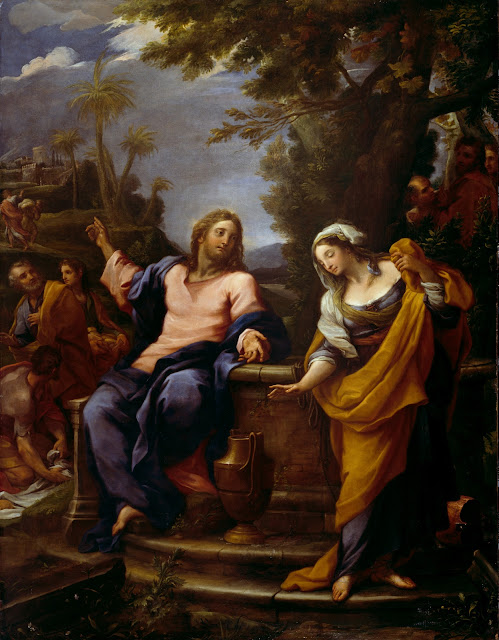
32 mmmmmmmmmmmmmmmmmmmmmmmmmmmmmmmm Image Source
by ANNIBALE CARRACCI
"Christ and the Samaritan Woman" . .
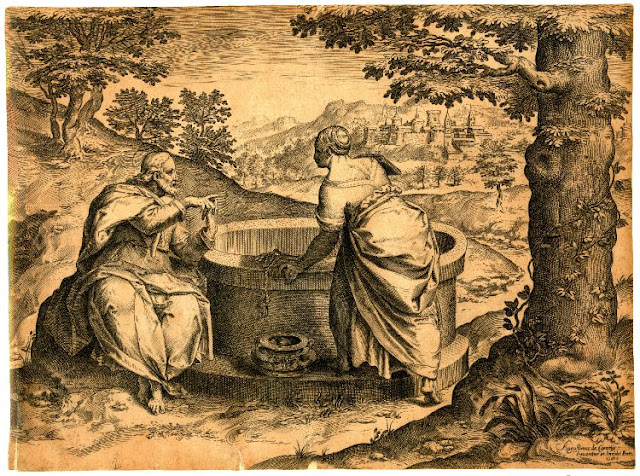
33 mmmmmmmmmmmmmmmmmmmmmmmmmmmmmmmm Image Source
by AGOSTINO CARRACCI
"Christ and the Samaritan Woman" . .

34 mmmmmmmmmmmmmmmmmmmmmmmmmmmmmmmm Image Source . .

35 mmmmmmmmmmmmmmmmmmmmmmmmmmmmmmmm Image Source
by JOSEF VON HEMPEL
"Christ and the Samaritan Woman" . .
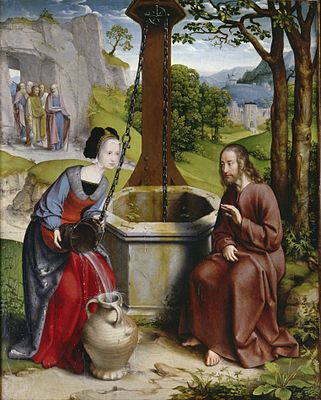
36 mmmmmmmmmmmmmmmmmmmmmmmmmmmmmmmm Image Source
by JAN JOEST VAN KALKAR
"Christ and the Samaritan Woman" . .

37 mmmmmmmmmmmmmmmmmmmmmmmmmmmmmmmm Image Source
by STEFANO ERARDI
"Christ and the Samaritan Woman" . .

38 mmmmmmmmmmmmmmmmmmmmmmmmmmmmmmmm Image Source
by GIACOMO FRANCESCHINI
"Jesus and the Samaritan Woman" . .
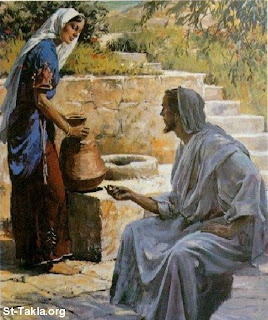
39 mmmmmmmmmmmmmmmmmmmmmmmmmmmmmmmm Image Source . .
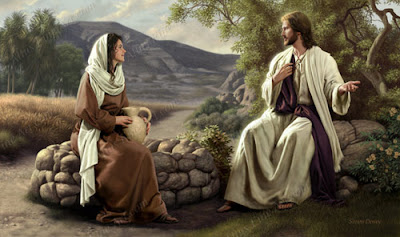
40 mmmmmmmmmmmmmmmmmmmmmmmmmmmmmmmm Image Source
by SIMON DEWEY
"Woman at the Well" . .

42 mmmmmmmmmmmmmmmmmmmmmmmmmmmmmmmm Image Source

43 mmmmmmmmmmmmmmmmmmmmmmmmmmmmmmmm Image Source
by HEINRICH HOFMANN, 1893
"Jesus and the Woman of Samaria"

44 mmmmmmmmmmmmmmmmmmmmmmmmmmmmmmmm Image Source
by DUCCIO DI BUONINSEGNA, 311
"Christ and the Samaritan Woman"

45 mmmmmmmmmmmmmmmmmmmmmmmmmmmmmmmm Image Source
by PAOLO VERONESE, 1585
"Christ and the Woman of Samaria"

46 mmmmmmmmmmmmmmmmmmmmmmmmmmmmmmmm Image Source
by JOSEF VON HEMPEL, 1823
"Christ and the Samaritan at the Fountain"

47 mmmmmmmmmmmmmmmmmmmmmmmmmmmmmmmm Image Source
by JAN JOEST VON KALKAR
"Christ and the Samaritan at Jacob's Fountain"

48 mmmmmmmmmmmmmmmmmmmmmmmmmmmmmmmm Image Source
by JACOB VAN OOST the Younger
"Christ and the Samaritan Woman at the Well"
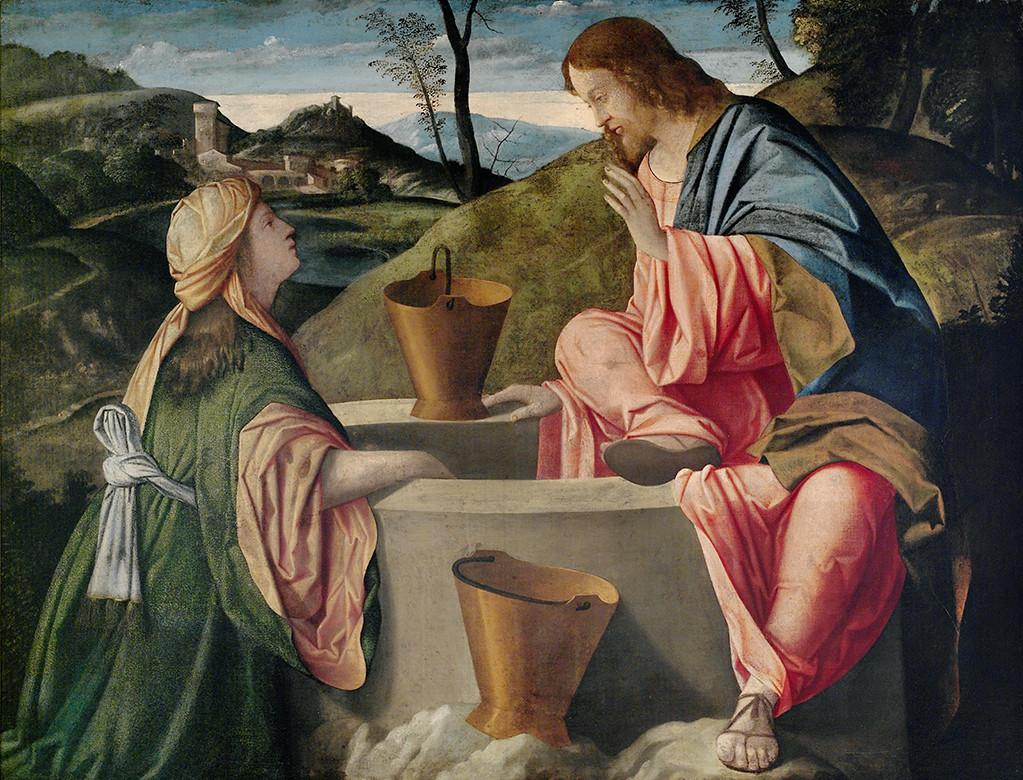
49 mmmmmmmmmmmmmmmmmmmmmmmmmmmmmmmm Image Source
by VINCENZO CATENA, 1525
"Christ and the Samaritan Woman"
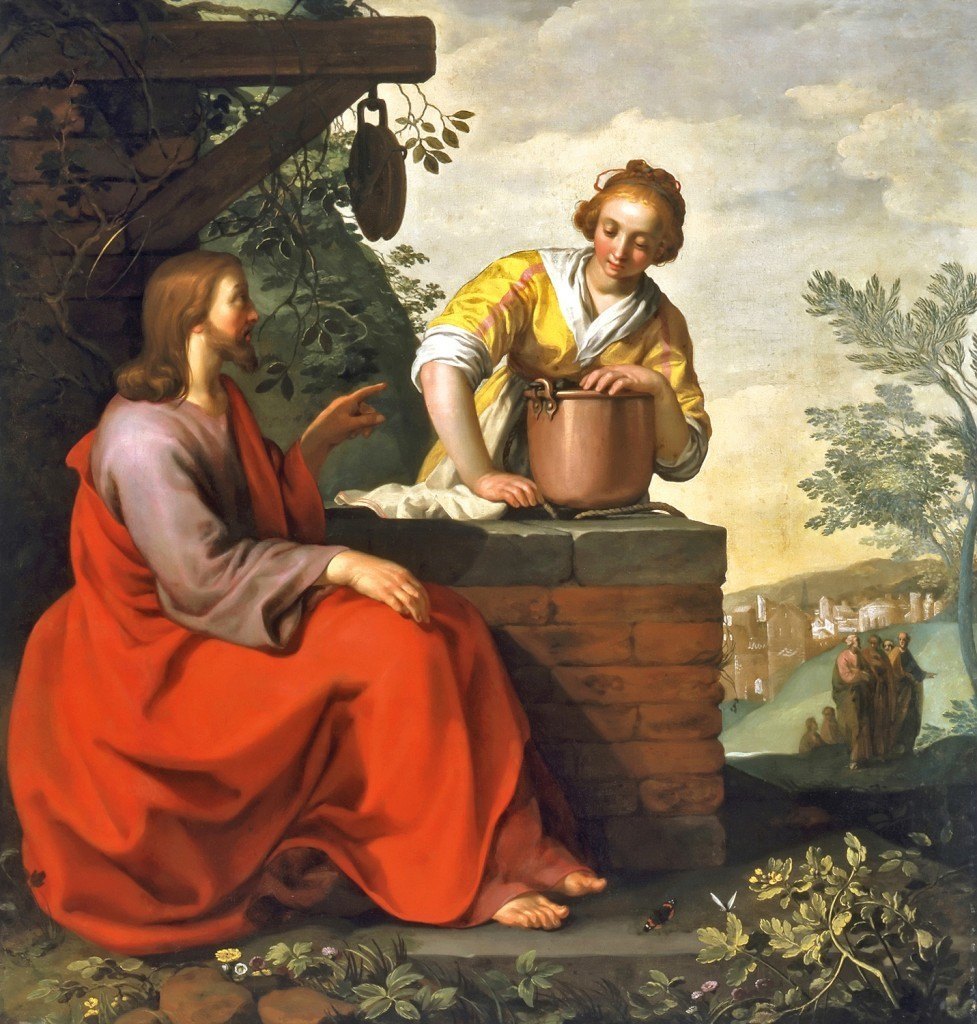
50 mmmmmmmmmmmmmmmmmmmmmmmmmmmmmmmm Image Source
by ABRAHAM BLOEMAERT, 1625
"Christ and the Samaritan Woman"

51 mmmmmmmmmmmmmmmmmmmmmmmmmmmmmmmm Image Source
by HENRYK SIEMIRADZKI, 1890
"Christ and Samaritan Woman"

52 mmmmmmmmmmmmmmmmmmmmmmmmmmmmmmmm Image Source
by FERNANDO GALLEGO
"Christ and the Samaritan Woman"

53 mmmmmmmmmmmmmmmmmmmmmmmmmmmmmmmm Image Source
by GUERCINO, 1647
"Christ and the Woman of Samaria" . .
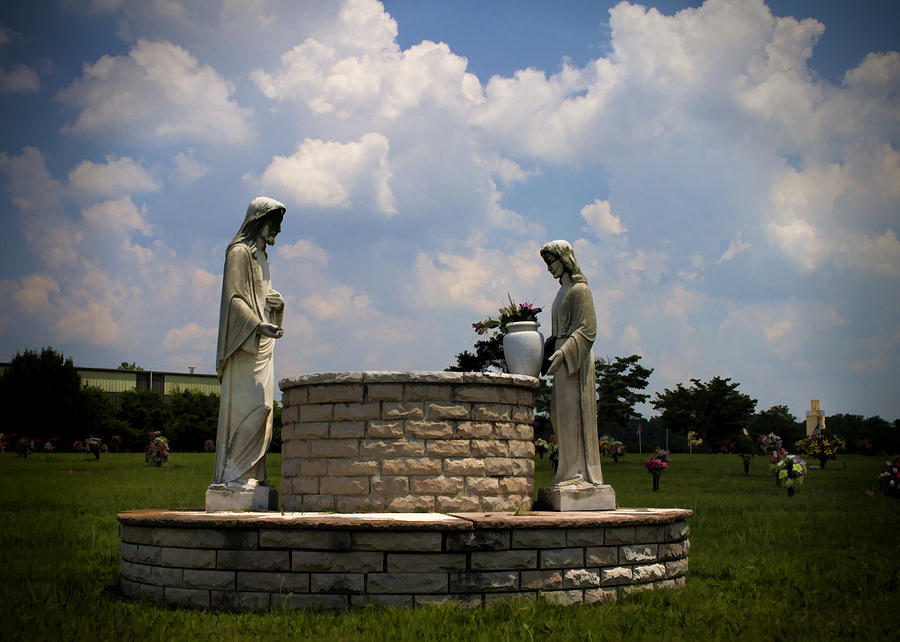
54 mmmmmmmmmmmmmmmmmmmmmmmmmmmmmmmm Image Source . .

55 mmmmmmmmmmmmmmmmmmmmmmmmmmmmmmmm Image Source . .

56 mmmmmmmmmmmmmmmmmmmmmmmmmmmmmmmm Image Source
"Staying at the Well"
Mount Nho, Vung Tau, Vietnam
→ a n d... f i n a l l y ←
|
WE HAVE THIS ON-POINT VIDEO

TO SHOW JESUS' FASCINATING TALK WITH THE SAMARITAN WOMAN AT THE WELL Jesus and the Samaritan
Woman at the Wellan 8-minute excerpt from The Chosen
(Season 1, Episode 8)
TOPICS: Apologetics; General Discusssion; History; Theology
KEYWORDS: art; bible; paintings
Navigation: use the links below to view more comments.
first previous 1-20, 21-32 last
To: etabeta
Crack that whip, Mama, like Mary did at Cana!
21
posted on
05/23/2021 1:11:58 PM PDT
by
Hebrews 11:6
(Watch "THE CHOSEN," the great show about Jesus: https://watch.angelstudios.com/thechosen )
To: Hebrews 11:6
Ahahah! He adores his mama and I adore him. We have a wonderful relationship, thank God!
22
posted on
05/23/2021 1:29:55 PM PDT
by
etabeta
To: etabeta
That’s lovely and wonderful, Alba.
23
posted on
05/23/2021 2:01:50 PM PDT
by
Hebrews 11:6
(Watch "THE CHOSEN," the great show about Jesus: https://watch.angelstudios.com/thechosen )
To: Hebrews 11:6
It is worth noting at this time who the ‘Samaritans’ were (See also The Good Samaritan parable).
The Samaritans, who lived in areas to the north and northeast of Judea, were considered a mongrel race any the Jews, and would not even talk to them unless it was absolutely necessary. They were shunned and ignored for the most part.
Why?
Because the Samaritans, named for the geographic area where they lived, were the descendants of the pagan people the Assyrians moved into the area after taking the Northern Kingdom of Israel into captivity.
When the ten tribes were carried away into captivity to Assyria, the king of Assyria sent people from Cutha, Ava, Hamath, and Sepharvaim to inhabit Samaria (2 Kings 17:24; Ezra 4:2-11). These foreigners intermarried with the Israelite population that was still in and around Samaria. These “Samaritans” at first worshiped the idols of their own nations, but being troubled with lions, they supposed it was because they had not honored the God of that territory. A Jewish priest was therefore sent to them from Assyria to instruct them in the Jewish religion. They were instructed from the books of Moses, but still retained many of their idolatrous customs. The Samaritans embraced a religion that was a mixture of Judaism and idolatry (2 Kings 17:26-28). Because the Israelite inhabitants of Samaria had intermarried with the foreigners and adopted their idolatrous religion, Samaritans were generally considered “half-breeds” and were universally despised by the Jews.
Additional grounds for animosity between the Israelites and Samaritans were the following:
1. The Jews, after their return from Babylon, began rebuilding their temple. While Nehemiah was engaged in building the walls of Jerusalem, the Samaritans vigorously attempted to halt the undertaking (Nehemiah 6:1-14).
2. The Samaritans built a temple for themselves on “Mount Gerizim,” which the Samaritans insisted was designated by Moses as the place where the nation should worship. Sanballat, the leader of the Samaritans, established his son-in-law, Manasses, as high priest. The idolatrous religion of the Samaritans thus became perpetuated.
3. Samaria became a place of refuge for all the outlaws of Judea (Joshua 20:6-7; 21:21). The Samaritans willingly received Jewish criminals and refugees from justice. The violators of the Jewish laws, and those who had been excommunicated, found safety for themselves in Samaria, greatly increasing the hatred which existed between the two nations.
4. The Samaritans received only the five books of Moses and rejected the writings of the prophets and all the Jewish traditions.
From these causes arose an irreconcilable difference between them, so that the Jews regarded the Samaritans as the worst of the human race (John 8:48) and had no dealings with them (John 4:9). In spite of the hatred between the Jews and the Samaritans, Jesus broke down the barriers between them, preaching the gospel of peace to the Samaritans (John 4:6-26), and the apostles later followed His example (Acts 8:25).
24
posted on
05/24/2021 5:25:47 AM PDT
by
Red Badger
(Jesus said there is no marriage in Heaven. That's why they call it Heaven.....................)
To: Red Badger
Very informative, Red—thank you! Is this your own writing?
25
posted on
05/24/2021 7:00:31 AM PDT
by
Hebrews 11:6
(Watch "THE CHOSEN," the great show about Jesus: https://watch.angelstudios.com/thechosen )
To: Hebrews 11:6
26
posted on
05/24/2021 7:11:21 AM PDT
by
Red Badger
(Jesus said there is no marriage in Heaven. That's why they call it Heaven.....................)
To: Red Badger
I knew the what but not the why, beyond the Samaritans’ mongrelization. Thanks.
27
posted on
05/24/2021 9:49:22 AM PDT
by
Hebrews 11:6
(Watch "THE CHOSEN," the great show about Jesus: https://watch.angelstudios.com/thechosen )
To: Hebrews 11:6
Parable of the wineskins...................
28
posted on
05/24/2021 9:50:35 AM PDT
by
Red Badger
(Jesus said there is no marriage in Heaven. That's why they call it Heaven.....................)
To: Red Badger
Well, I can see AN application of that parable to this situation; but what application are YOU making?
29
posted on
05/24/2021 10:12:27 AM PDT
by
Hebrews 11:6
(Watch "THE CHOSEN," the great show about Jesus: https://watch.angelstudios.com/thechosen )
To: Hebrews 11:6
The Parable of the Wineskins is probably the least understood of Jesus’ parables.
I have read several interpretations and they don’t always agree.
First, we must get our terms in focus.
The term ‘New Wine’, as used in the New Testament, means wine that has not completed its fermentation process, and so is still very sweet, having lots of sugar not yet turned to alcohol. It has an alcohol content of about 4-5% or roughly equivalent to a strong beer.
Next, ‘Old Wineskins’ are wineskins that are dried, stiff and brittle from usage and have been stretched to their limits by CO2 from the fermentation process, having been used previously.
Conversely, ‘New Wineskins’ are soft, pliable and stretchable, and will expand when new wine is stored in them.
These three things are metaphors for the time in which Jesus is speaking.
‘Old Wineskins’ is the metaphor for the religious stagnation of the Jews at that time.
‘New Wineskins’ is the metaphor for the religious rebirth that is coming.
‘New Wine’ is the metaphor for the NEW Christianity that will soon take root in the pagan Roman Empire.
The Jewish religious power structure of that day had become dried, stiff and brittle from centuries of dogmatic theocratic societal control. The Pharisees and Sadducees controlled everything in everyday Jewish life and had bent and twisted the religious rules to suit themselves and retain their power (Much like Democrats and Republicans in today’s USA).
The ‘New Wine’ of Christianity could not ferment, expand and take hold in this environment. It would have been extinguished even before it had a chance to grow.
The ‘New Wineskins’ are Jesus followers and not just the 12 apostles, but all the men and women who followed his ministry throughout Judea and Samaria.
But they were Jews! Yes, you are correct, they ‘were’ Jews right up until the Day of Pentecost, when in the closed upper room, the Holy Spirit descended upon them and Christianity was ‘born’.
Remember, they all began ‘speaking in tongues’ of every language then known. People said they were “Drunk on New Wine”, and they were! The New Wine of Christianity!
That this happened on the Day of Pentecost was no mere coincidence. This was a major annual religious holiday after Passover, 50 days. Jews from all over the Empire came to Jerusalem to celebrate, and they spoke every language from their homes. How surprised they must have been to hear the Gospel spoken to them in their own languages!
The Day of Pentecost was also a celebration of the Giving of the Torah (Law) and the summer wheat harvest. How apropos it was that Jesus had ‘Fulfilled the Law’ and the ‘Harvest’ of Christians had begun!.
But even though all this was happening in Jerusalem, it would not be enough to carry the New Wine of Christianity to the entire world.
Paul was appointed Apostle to the Gentiles to carry the message to the very heart of the Empire where it would take root, grow slowly and become eventually the religion of the Western world.
As it is written in Acts 28:
23 And when they had appointed him a day, there came many to him into his lodging; to whom he expounded and testified the kingdom of God, persuading them concerning Jesus, both out of the law of Moses, and out of the prophets, from morning till evening.
24 And some believed the things which were spoken, and some believed not.
25 And when they agreed not among themselves, they departed, after that Paul had spoken one word, Well spake the Holy Ghost by Esaias the prophet unto our fathers,
26 Saying, Go unto this people, and say, Hearing ye shall hear, and shall not understand; and seeing ye shall see, and not perceive:
27 For the heart of this people is waxed gross, and their ears are dull of hearing, and their eyes have they closed; lest they should see with their eyes, and hear with their ears, and understand with their heart, and should be converted, and I should heal them.
28 Be it known therefore unto you, that the salvation of God is sent unto the Gentiles, and that they will hear it.
29 And when he had said these words, the Jews departed, and had great reasoning among themselves.
30
posted on
05/24/2021 12:28:43 PM PDT
by
Red Badger
(Jesus said there is no marriage in Heaven. That's why they call it Heaven.....................)
To: Red Badger
Thank you, RB, for taking the time and trouble to make that clear, especially considering that I may be the only live human ever to read it (bar researchers during the Millennium--Hi!).
It fascinates me that this series, predicated as it is on the Word, sees so little explication of it. But God, in His perfect wisdom, hasn't called me to expound upon or exegete from it--only to illustrate it.
31
posted on
05/24/2021 1:08:19 PM PDT
by
Hebrews 11:6
(Watch "THE CHOSEN," the great show about Jesus: https://watch.angelstudios.com/thechosen )
To: imardmd1
see — new “wine”, not new “grape juice”
32
posted on
05/24/2021 1:25:30 PM PDT
by
Cronos
( )
Navigation: use the links below to view more comments.
first previous 1-20, 21-32 last
Disclaimer:
Opinions posted on Free Republic are those of the individual
posters and do not necessarily represent the opinion of Free Republic or its
management. All materials posted herein are protected by copyright law and the
exemption for fair use of copyrighted works.
FreeRepublic.com is powered by software copyright 2000-2008 John Robinson




























